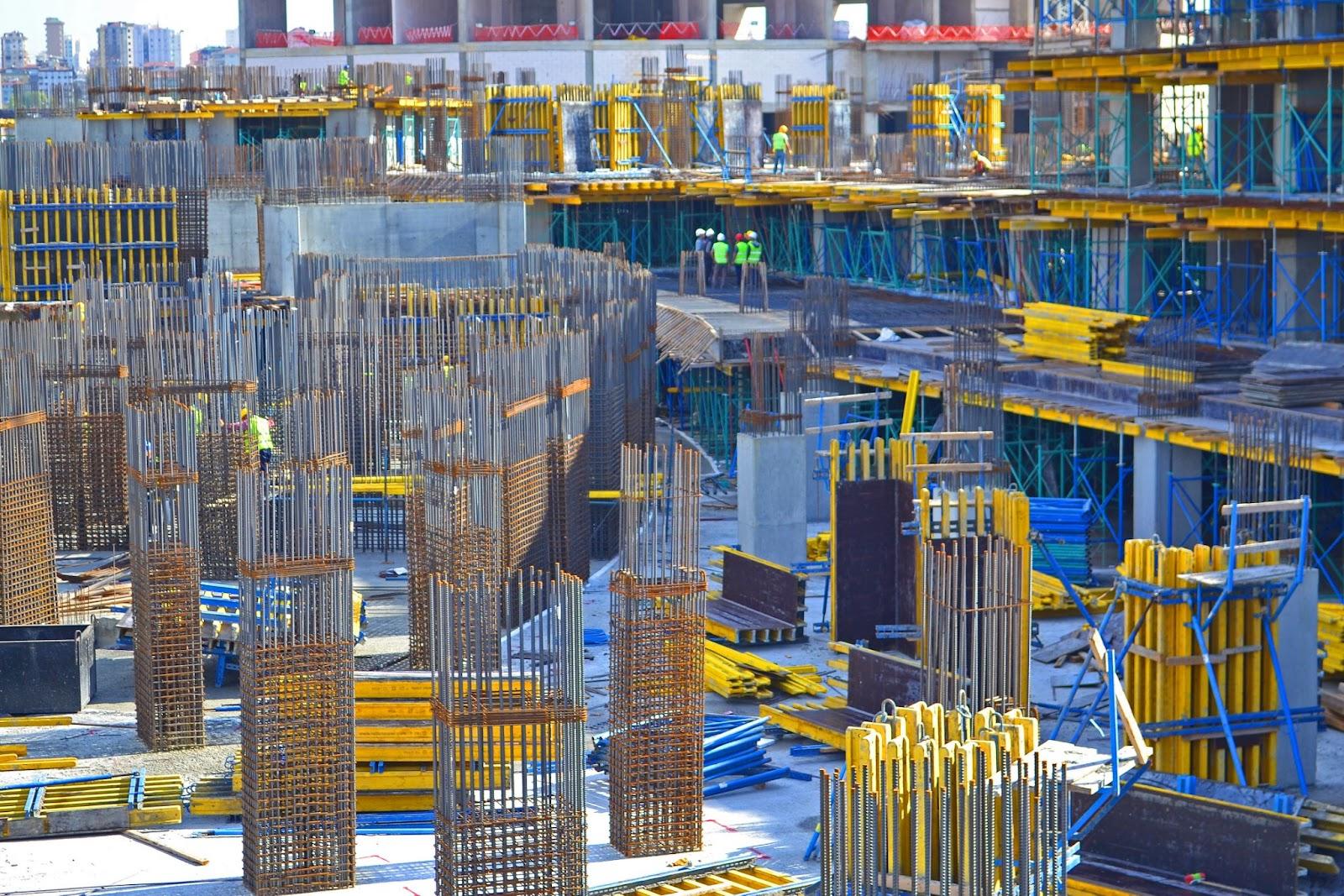Those who have ever tried to keep track of all the equipment, materials, and tools on the sites know it’s just a nightmare. There are machines to be maintained, tools to be arranged, and materials that need to be managed -all while staying on top of timelines and budgets. That is where construction equipment tracking software comes into play. Let’s explore in detail how the technology asset tracking with RFID can prove to be a game-changing thing for construction companies and what its key benefits are.
What is RFID Asset Tracking?
Before discussing the benefits, let’s properly define RFID for asset tracking. RFID stands for Radio Frequency Identification. It works by using RFID devices, including small RFID tags placed on assets. These tags store data about the item, which an RFID reader can read without needing a direct line of sight.
In plain English, RFID asset tracking solutions tell you where tools, machinery, and supplies are at any given time by simply scanning tags. In fact, this technology can be integrated into software systems offering real-time tracking and inventory updates-something every project manager’s dream is made of.
Why RFID in Construction Makes Sense
The construction industry is infamous for its losses through misplaced tools, misplaced materials, and delays partly caused by mismanaged assets. Classic asset tracking with pen-and-paper or even barcode systems can be very time-consuming and prone to many errors. By adding RFID asset tracking in construction industry, you add a level of automation and accuracy that can drastically improve efficiency. Imagine how smoother your operations could run if you could trim down the time wasted in searching for misplaced items!
Key Benefits of RFID Asset Tracking in Construction
Now, let us have a detailed view of the benefits associated with RFID asset tracking in construction and why most companies are now turning toward this technology.
1. Real Time Asset Visibility
Asset tracking with RFID allows you to receive an accurate real-time view of all your assets. RFID tags can be attached to everything from machinery to safety gear, and you will know exactly where each one of them is at every given moment. Imagine not having to spend hours looking for a piece of equipment, only to have to scan its location using RFID devices.
2. Enhanced Productivity and Efficiency
Full real-time visibility assists in keeping better track of what is on-site, what is in storage, and what is presently used.
Time is money, and it is very much true in the case of construction. RFID asset tracking solutions greatly enhance productivity. Workers need not take extra time for the manual checking of tools and materials or filling up stacks of papers. A simple scan using asset tracking RFID tags will serve to bring an item on record. Such automation frees the workers to become more task-oriented, reduces downtime, and accelerates project timelines.
3. Less Theft and Loss
Construction sites often face theft, especially if there is expensive equipment and tools left around not monitored. By labeling your assets with RFID tagging, you create a digital footprint of each. You can set up alerts to notify the site managers when tagged items leave the premises unauthorized, so theft is avoided and losses minimized. RFID asset tracking cost will pay for itself when you start factoring in the savings from the reduction of asset loss.
4. Enhanced Maintenance Schedules
Other challenges of working on the construction site include keeping equipment maintenance schedules. Poorly maintained equipment may experience an unexpected breakdown, which often results in delays that can also become costly.
Using RFID for asset tracking allows one to easily locate machinery that is due for service. You can assign maintenance dates to RFID tags and get automatic alerts when any piece of equipment needs attention so that everything is in good working condition and extends the life of your tools.
5. Data-Driven Decision Making
RFID-based systems generate a lot of data on which better decisions can be based. Managers will have the ability to go over the movement history of assets, pinpoint the patterns of inefficiency, and reallocate resources according to use data. For example, if you realize that some tools are not in use as much, you will know whether they are needed for the particular project or not. RFID asset tracking solutions guarantee a data-driven approach to ensure that you are not only tracking your assets but also working out a plan for their optimization towards cost savings and better resource management.
6. Smoothened Inventory Management
The hassle of inventory management is incredibly mitigating, with the potential to have many different materials scattered across several locations. With Asset Tracking RFID Construction, materials can easily be found and accounted for. You will know just how much inventory you are going to have at any exact time in order to help you avoid making those unnecessary purchases or running out of items at the very moment you need them.
7. Lower Operational Costs
Some may question the RFID asset tracking cost. It is best to consider the big picture. With reduced losses, increased productivity, and better utilization of available resources, RFID technology will surely reduce your overall cost of doing business. Think of not having to pay to replace lost tools or the cost of a project delay because a key piece of equipment went missing; that can be quite a relief.
Let me give you perspective on how the asset tracking RFID tags are being applied on the regular building site: the RFID tags could be attached to the equipment, imbedded in the tools, or even placed in the materials such as pallets or steel beams. These tags store unique identification data, which are readable by RFID readers from a distance, and are much more efficient compared to the barcode, which needs to have a line of sight.
A tagged item moving in or out of the construction site is intercepted by a reader from RFID, automatically logging into the system. This leaves a clear trail on every item to facilitate auditing of what comes in and goes out. RFID in construction ensures nothing goes unnoticed.
Challenges and RFID Asset Tracking Cost
Of course, as with any technology, there are also challenges: the initial RFID asset tracking cost may be a barrier to some construction companies. Such costs include not only the purchasing of RFID devices and RFID tags but also their integration with existing management software. However, quite often, the returns outweigh such initial investment. Savings from reduced manual labor, prevention of theft, and overall efficiency boost contribute to a speedy return on investment.
The other challenge is the environment of the site itself: construction sites are violent in that there is plenty of dust, debris, and rough handling. Fortunately, such conditions have durable RFID tags designed for them, and RFID tagging can be viable even in difficult conditions.
Implementing RFID: Is It Worth It?
Is asset tracking with RFID, therefore, worth it in construction projects? That depends on your needs.
For large sites involving a lot of valuable assets, RFID can be a real savior. It is especially useful in cases where high-value machinery, tools, and materials need to be traced at all times due to the risk of theft and maintaining efficiency.
RFID in construction tracking is not just needed for keeping track of where things are but is a transformation to asset management. Automatic maintenance of asset counts allows a construction company to minimize manual errors, utilize better resources, and make better decisions.
Wrap Up
As a reason for that, RFID asset tracking is fast becoming an industry standard due to, well, just about all good reasons: real-time visibility, reduced losses, and improved maintenance – the advantages of RFID asset tracking allow it to be a potent tool for modern construction projects. Though the cost of RFID asset tracking may seem high, quite often, the return from investment comes in rather quickly, with time saved, theft reduced, and operations generally more efficient.
So, for maximum efficiency, fewer headaches, and smoother operations, RFID asset tracking solutions might just be what your construction business needs to take it to the next level. The construction industry may be ever-changing, but one thing is for sure: RFID is here to stay, helping bring order to the chaos and making a construction site more efficient, much safer, and more profitable.
























